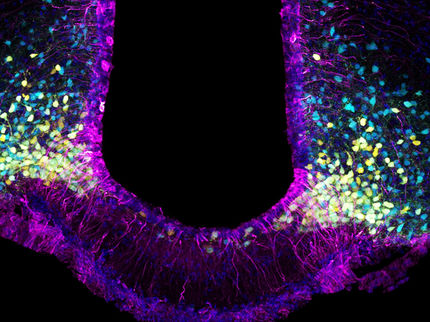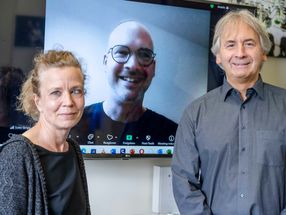Is less sugar better for our brain?
"Our research findings suggest that lactose in particular can accelerate the neurodegeneration of our brain"
Elevated blood sugar levels can have a direct impact on our brain. If the blood vessels change due to sugar-related deposits, individual areas of the brain can be undersupplied, which can trigger strokes as well as dementia. Scientists at the Department of Neurology at the University Hospital Regensburg (UKR) have now discovered that a low-sugar diet could also have positive effects on the long-term performance of the brain, regardless of blood sugar levels.
"Our research results indicate that lactose in particular can accelerate the neurodegeneration of our brain," explains Professor Dr. Ralf Linker, Director of the Department of Neurology at the UKR. The starting point for the scientific work was the investigation of the effect of lactose on the brain in autoimmune diseases, such as multiple sclerosis (MS). "Although we were unable to find any evidence that higher sugar consumption influences the risk of MS in the model or directly changes the immune system, there were direct effects of lactose consumption on the brain," explains Dr. Stefanie Haase, Head of Laboratory at the Department of Neurology at the UKR and head of the study.
The research team found that lactose attaches itself to proteins and in this way changes the insulating layer of cells, which leads to faster wear and tear and ageing of brain cells. Such processes can pave the way for dementia such as Alzheimer's disease. A fine line, because the brain is also known to need sugar to perform in order to function. "Our brain uses a lot of energy. In this case, glucose in the form of dextrose is an excellent supplier," Professor Linker continues. In normal operation, the brain uses around 75 percent of the glucose consumed in all body cells. It is therefore important to find a healthy balance in order to keep the sugar balance constant and not to under-sugar in order to maintain mental and physical performance. In their study, the scientists have now been able to prove that too much sugar can not only damage the heart, liver and other organs, but also the brain. The next steps will be to investigate how the newly gained knowledge directly affects the treatment of patients in order to improve their quality of life, performance and resilience.
Note: This article has been translated using a computer system without human intervention. LUMITOS offers these automatic translations to present a wider range of current news. Since this article has been translated with automatic translation, it is possible that it contains errors in vocabulary, syntax or grammar. The original article in German can be found here.
Original publication
Stefanie Haase, Kristina Kuhbandner, Florian Mühleck, Barbara Gisevius, David Freudenstein, Sarah Hirschberg, De-Hyung Lee, Stefanie Kuerten, Ralf Gold, Aiden Haghikia, Ralf A. Linker; "Dietary galactose exacerbates autoimmune neuroinflammation via advanced glycation end product-mediated neurodegeneration"; Frontiers in Immunology, Volume 15, 2024-8-9
Most read news
Original publication
Stefanie Haase, Kristina Kuhbandner, Florian Mühleck, Barbara Gisevius, David Freudenstein, Sarah Hirschberg, De-Hyung Lee, Stefanie Kuerten, Ralf Gold, Aiden Haghikia, Ralf A. Linker; "Dietary galactose exacerbates autoimmune neuroinflammation via advanced glycation end product-mediated neurodegeneration"; Frontiers in Immunology, Volume 15, 2024-8-9
Topics
Organizations
Other news from the department science

Get the food & beverage industry in your inbox
By submitting this form you agree that LUMITOS AG will send you the newsletter(s) selected above by email. Your data will not be passed on to third parties. Your data will be stored and processed in accordance with our data protection regulations. LUMITOS may contact you by email for the purpose of advertising or market and opinion surveys. You can revoke your consent at any time without giving reasons to LUMITOS AG, Ernst-Augustin-Str. 2, 12489 Berlin, Germany or by e-mail at revoke@lumitos.com with effect for the future. In addition, each email contains a link to unsubscribe from the corresponding newsletter.





























































